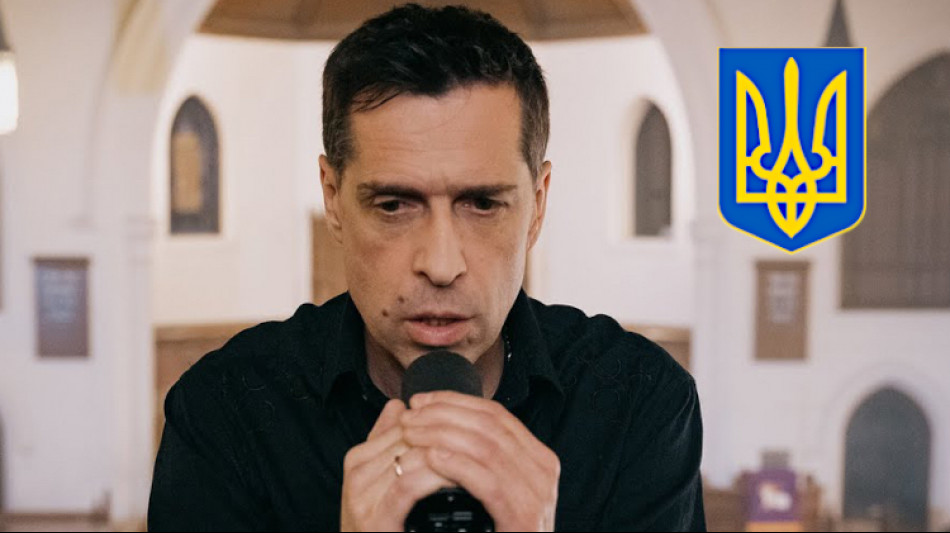-
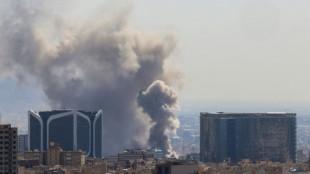 US-Israeli strikes pummel Tehran, as Trump says 'too late' for talks
US-Israeli strikes pummel Tehran, as Trump says 'too late' for talks
-
US Homeland Security chief grilled over immigration crackdown

-
 Arteta fires back at critics of Arsenal's set-piece success
Arteta fires back at critics of Arsenal's set-piece success
-
2017 implosion of Argentine submarine was 'foreseeable,' trial hears
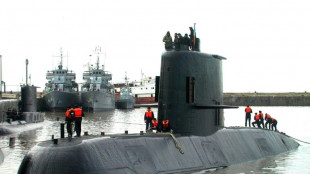
-
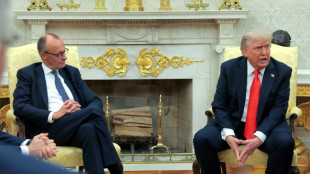 Germany's Merz meets Trump for talks eclipsed by Iran war
Germany's Merz meets Trump for talks eclipsed by Iran war
-
Real Madrid's Rudiger tried to 'smash my face in': Getafe's Rico

-
 England rip up team sheet for Italy Six Nations clash
England rip up team sheet for Italy Six Nations clash
-
Real Madrid's Brazilian winger Rodrygo set to miss World Cup with knee injury

-
 Man Utd 'hungry for more', says Carrick
Man Utd 'hungry for more', says Carrick
-
Flights to evacuate stranded travellers in Middle East

-
 England make sweeping changes for Italy Six Nations clash
England make sweeping changes for Italy Six Nations clash
-
Mideast war threatens to spark world energy crisis

-
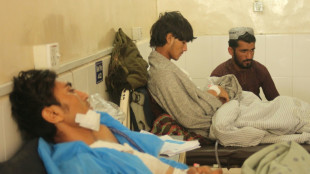 Tens of thousands of Afghans displaced by Pakistan conflict
Tens of thousands of Afghans displaced by Pakistan conflict
-
Unbeaten South Africa face 'fresh start' in semi-final: Markram

-
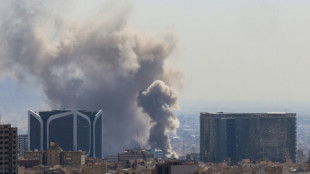 Iran steps up attacks on Mideast economy in response to US-Israeli strikes
Iran steps up attacks on Mideast economy in response to US-Israeli strikes
-
'We back ourselves': Underdogs New Zealand eye T20 World Cup final

-
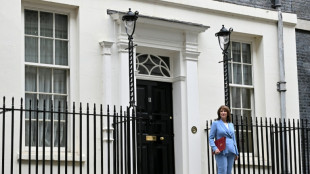 UK cuts 2026 growth forecast, flags Iran war risk
UK cuts 2026 growth forecast, flags Iran war risk
-
Guardiola says Premier League teams must adapt to set-piece threat

-
 Will Iran take part in the 2026 World Cup?
Will Iran take part in the 2026 World Cup?
-
Afghans escape from Iranian cities to get home

-
 'Peaky Blinders' stars hit Brum red carpet for movie premiere
'Peaky Blinders' stars hit Brum red carpet for movie premiere
-
Brazil's Flamengo sack coach Filipe Luis despite 8-0 win

-
 England 'not fearing anything' against India, says Curran
England 'not fearing anything' against India, says Curran
-
Global markets turmoil intensifies on Iran war
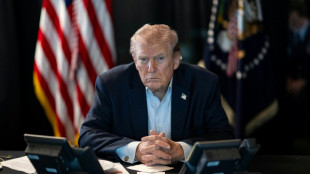
-
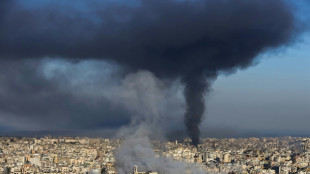 Iran targets Mideast energy industry and US missions
Iran targets Mideast energy industry and US missions
-
Rahm accuses DP World Tour of 'extorting players' with LIV deal

-
 Thousands of Afghans displaced by Pakistan conflict
Thousands of Afghans displaced by Pakistan conflict
-
China, North Korea make winning starts at Women's Asian Cup

-
 EU asylum applications down but Iran concerns mount
EU asylum applications down but Iran concerns mount
-
Rahm accuses DP World Tour of 'exorting players' with LIV deal

-
 Drones hit US embassy as vengeful Iran targets Mideast cities
Drones hit US embassy as vengeful Iran targets Mideast cities
-
Mideast war exposes fragile oil, gas dependency

-
 How the T20 World Cup semi-finalists shape up
How the T20 World Cup semi-finalists shape up
-
Oil extends gains and stocks dive as Middle East war spreads

-
 Warming El Nino may return later this year: UN
Warming El Nino may return later this year: UN
-
Trump says US-UK relationship 'not like it used to be'

-
 Eight years on, trial begins in Argentina submarine implosion
Eight years on, trial begins in Argentina submarine implosion
-
Beijing votes out three generals from political advisory body

-
 Oil extends gains and stocks dive as Iran conflict spreads
Oil extends gains and stocks dive as Iran conflict spreads
-
The French village where Ayatollah Khomeini fomented Iran's revolution

-
 South Africa, India eye T20 World Cup rematch as semi-finals begin
South Africa, India eye T20 World Cup rematch as semi-finals begin
-
Trump hosts Germany's Merz for talks eclipsed by Mideast war

-
 Second-hand phones surf rising green consumer wave
Second-hand phones surf rising green consumer wave
-
Pakistanis at remote border describe scramble to leave Iran

-
 China votes to oust three generals from political advisory body
China votes to oust three generals from political advisory body
-
Murray scores 45 as Nuggets hold off Jazz

-
 Five things about the 2026 F1 season
Five things about the 2026 F1 season
-
Scrum-half Gibson-Park: Ireland's 'petit general'

-
 Geopolitical storm leaves isolated Greenlanders hanging by a telecoms thread
Geopolitical storm leaves isolated Greenlanders hanging by a telecoms thread
-
Myong hat-trick as North Korea cruise at Women's Asian Cup

South Korea: Yoon Suk Yeol shocks Nation
South Korea in Crisis: President Yoon Suk Yeol's Coup Shakes the Nation
In a stunning and unprecedented move, South Korean President Yoon Suk Yeol has attempted to seize absolute power, plunging the nation into political chaos. On the night of December 3, President Yoon declared martial law, suspended the National Assembly, and deployed soldiers to surround its premises, effectively paralysing the country’s democratic institutions. The world is watching in shock as one of Asia’s most stable democracies faces an uncertain future.
The Coup: A Nation in Shock
The events unfolded rapidly on a cold December night, leaving South Koreans and the international community reeling. President Yoon cited national security threats and alleged internal dissent as justification for his actions, but critics are calling it a blatant power grab. By suspending the National Assembly—South Korea’s legislative body—Yoon has undermined the very foundation of the nation’s democratic system.
Eyewitnesses reported heavy military presence in the capital, Seoul, as soldiers and armoured vehicles took positions near government buildings. Communication networks were temporarily disrupted, adding to the confusion. The swift and calculated nature of the coup suggests months of planning, raising questions about who within the government and military may have supported the move.
Immediate Reactions: Outrage and Resistance
The coup has sparked widespread outrage among South Koreans. Protesters took to the streets in major cities, waving banners and chanting slogans calling for Yoon’s resignation. Opposition leaders condemned the move as a betrayal of the democratic values South Korea has upheld since its transition from military rule in the 1980s.
International leaders, including the US-President Joe Biden who is still in office until 20 January 2025 and Japanese Prime Minister Fumio Kishida, have expressed grave concern. The United Nations has called for an emergency session to address the situation, while human rights organisations warn of potential crackdowns on dissent.
What Led to This Crisis?
President Yoon’s tenure has been marked by polarising leadership and a growing divide between conservatives and progressives. Critics argue that his administration’s inability to address pressing economic challenges, such as rising housing costs and youth unemployment, eroded public trust. Yoon’s approval ratings had plummeted in recent months, and his administration faced mounting scrutiny over alleged corruption scandals.
While Yoon’s justification for the coup includes vague references to national security threats, experts believe the move was motivated by a desire to cling to power amidst growing opposition. Some speculate that internal disagreements within his party and the prospect of impeachment may have pushed Yoon to take drastic action.
The Role of the Military
The military’s involvement in the coup is particularly troubling for a country with a history of authoritarian rule. South Korea transitioned to a democracy in 1987 after decades of military dictatorship, and the armed forces have since remained apolitical. Yoon’s ability to mobilise the military raises questions about divisions within the armed forces and whether dissenting voices exist among its ranks.
Should significant portions of the military oppose Yoon’s actions, the possibility of a counter-coup or internal conflict could further destabilise the nation.
Implications for South Korea’s Future
The attempted coup casts a shadow over South Korea’s hard-earned reputation as a thriving democracy. Its political stability and economic strength have made it a key player in the global arena, but this crisis threatens to derail decades of progress.
Domestically, the suspension of democratic institutions could lead to widespread unrest, civil disobedience, and a protracted power struggle. Economically, investor confidence is likely to plummet, jeopardising South Korea’s status as a global technology and trade hub.
On the international stage, the coup could strain alliances, particularly with the United States, which has long regarded South Korea as a crucial ally in countering North Korea and maintaining regional stability. China and North Korea, meanwhile, may view the situation as an opportunity to exploit South Korea’s weakened state.
The Road Ahead: Democracy or Dictatorship?
The fate of South Korea now hinges on the response of its citizens, political leaders, and international allies. Opposition parties have called for immediate action to restore democracy, including mass protests and legal challenges. Meanwhile, world leaders face the delicate task of pressuring Yoon’s government while avoiding escalation.
The unfolding crisis serves as a stark reminder that even the most established democracies are not immune to authoritarian tendencies. For South Korea, the road ahead is fraught with uncertainty, but its people have shown resilience before. Whether the nation emerges from this crisis as a stronger democracy or succumbs to authoritarian rule will shape its future—and its place in the world—for generations to come.

What lies behind the anger in France’s banlieues?
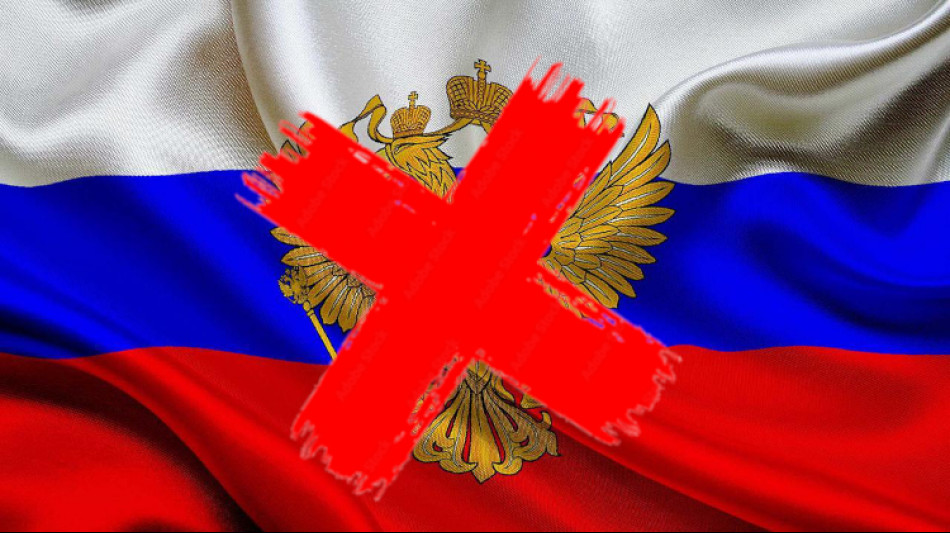
That's how terror Russians end up in Ukraine!

Is football becoming less competitive than before?

Border violence: What is going on in Bulgaria?

Sánchez's aim to reinstate leftist coalition set to fail!
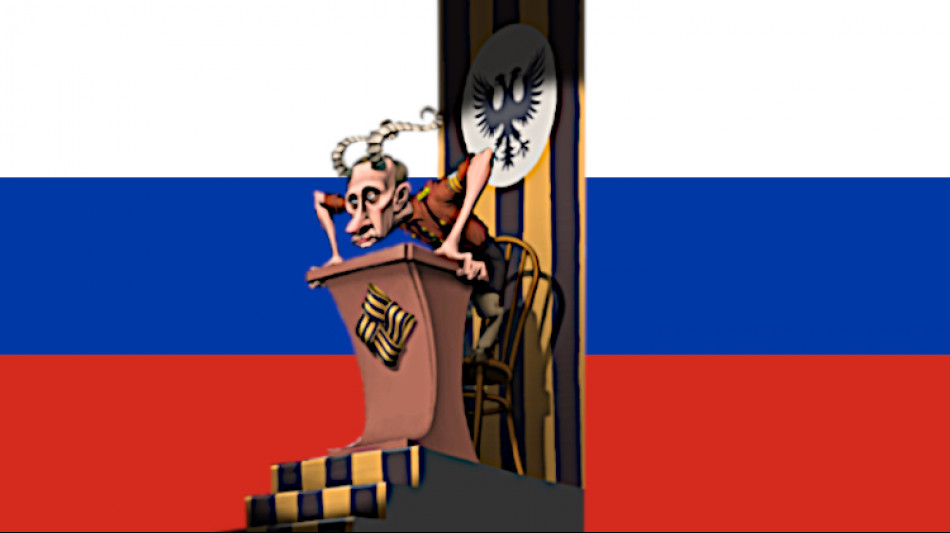
Russland als Terror-Staat / Russia as a terror state!
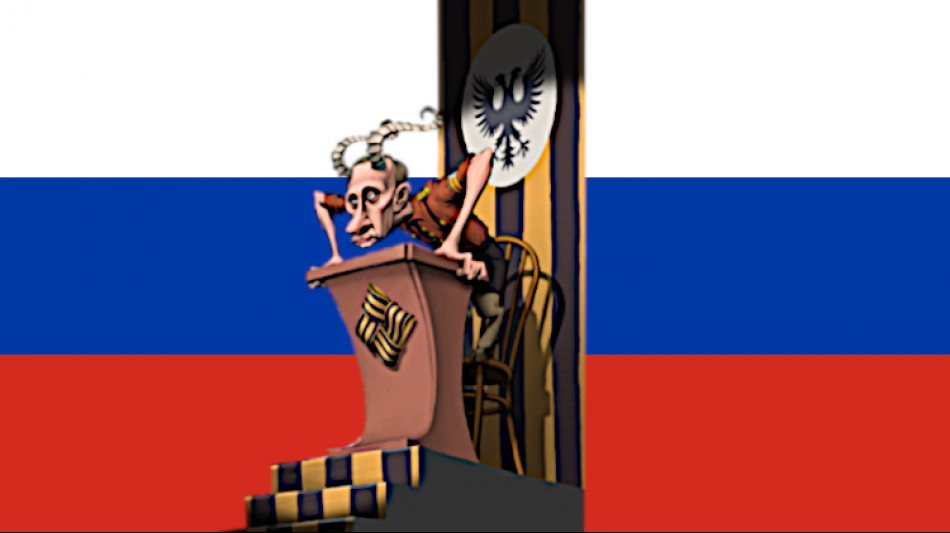
Ukraine in the fight against the russian terror State
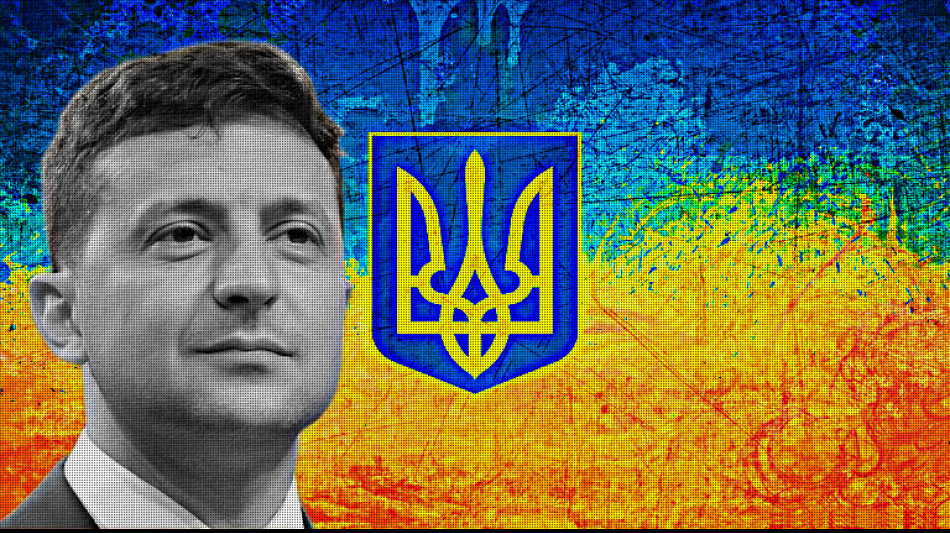
The Russian terrorist state will never own Ukraine!

ATTENTION, ATENCIÓN, УВАГА, ВНИМАНИЕ, 注意事项, DİKKAT, 주의, ATENÇÃO
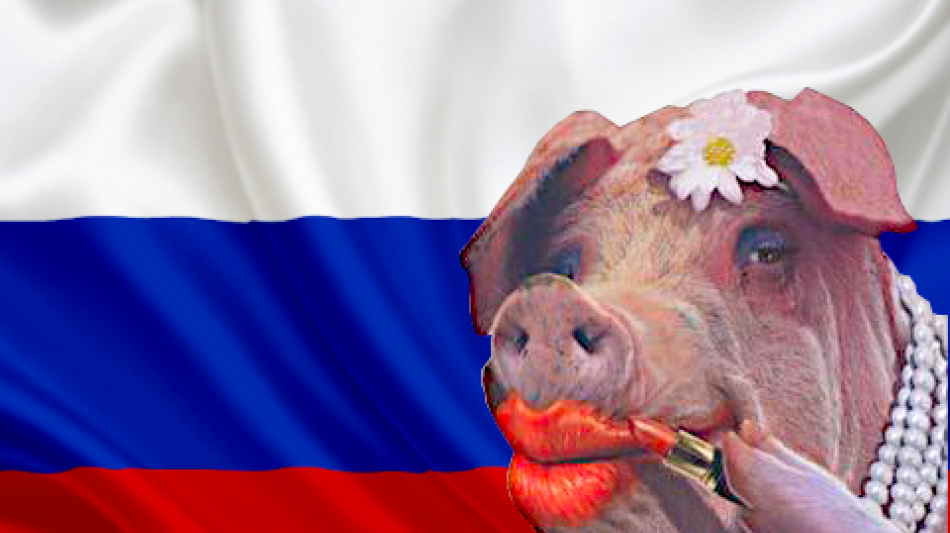
BRAVO: This is how the Russian scum in Ukraine ends!

Video, ビデオ, 视频, Відео, 비디오, Wideo, 動画, Βίντεο, Видео!!
